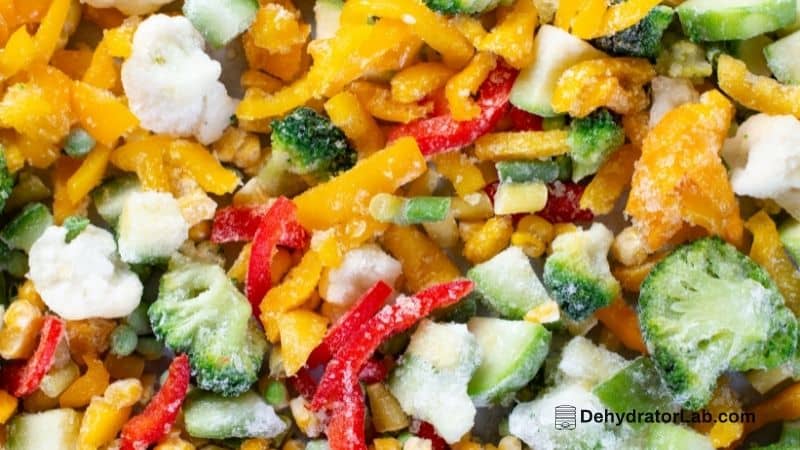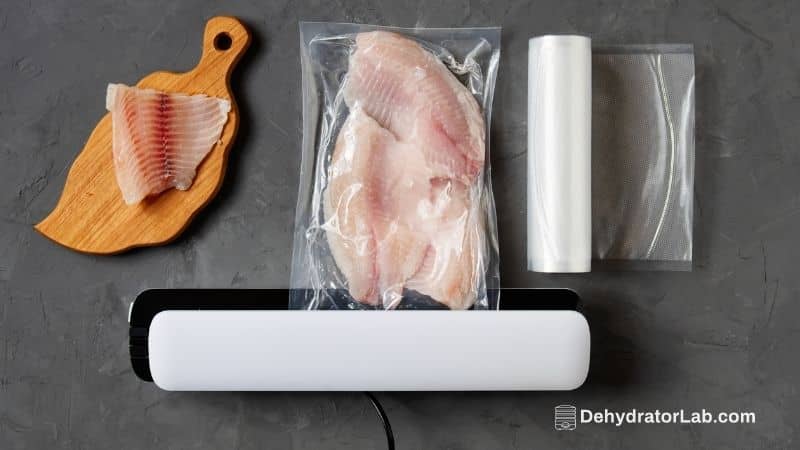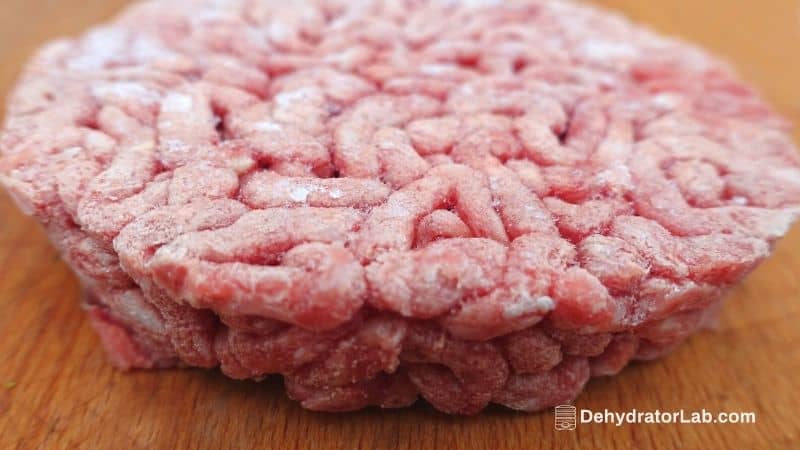Buying food in bulk is a sure way to save a few dollars on grocery shopping. However, most edibles have a short lifespan and can go bad pretty fast.
When stored properly, though, the food can be preserved and the lifespan can be extended to as long as a whole year. But you have to remember to do it right. The best and most common way to lengthen the lifespan is to freeze the food.
When not done right, you may end up tossing away a lot of food that has gone bad in the freezer due to freezer burn, sogginess and discolored vegetables, fruits, or off-putting taste. In any case, what you may end up throwing may look nothing like what you put in, to begin with.
Whether you are just starting on this method of food preservation, or you have several years of experience on it, you must have heard a few things about it and that might have left you wondering they are true or not, have you?
That’s what we’ll be talking about in this article. Let us debunk some of the most common misconceptions and myths surrounding frozen foods.

In this article:
Myth #1: Freezing Kills Bacteria
As discussed later in this article, low temperatures do not kill bacteria, they only make them inactive. Firstly, ensure your food has not been exposed to the danger zone (40-140 degrees Fahrenheit) which encourages the growth and spread of bacteria.
Food that has been sitting in the danger zone for more than two hours should be discarded immediately because it has already become a bacteria bonanza and a health hazard which if consumed can cause serious health risks such as food poisoning.
Secondly, when preparing the food for storage, apply food safety rules by ensuring your hands and counter are clean. Also, try not to cross-contaminate the food between surfaces so as to lengthen the lifespan of your food.
Myth #2: Refreezing Is Bad
Putting food back in the freezer can only be bad if the thawing process is not done right, otherwise refrozen food will remain safe for consumption. To properly defrost food, it is advisable to move the ingredients from the freezer to the refrigerator well ahead of time.
If you plan to use some of your frozen ingredients for dinner, move them first thing in the morning, and for breakfast, then do so the previous night. In case you forget or decide on a different menu last-minute, just submerge your frozen food in a bowl of COLD water and wait for it to defrost.
If you have already defrosted the food and you change your mind about what you want to make, you can return the food in the freezer without compromising its integrity. But if the food was not thawed properly in the first place, do not refreeze. It could already be compromised. Avoid thawing food on the countertop at all costs.
Myth #3: Fresh Food Is Better Than Frozen Food
Farmers and buyers have to put into consideration the time it takes for the farm produce to get from the farm to the consumer. It will require packaging, shipping, and stocking before it reaches you. During this process, nutrients such as minerals and vitamins may be lost. For this reason, most fruits and vegetables are picked before they ripen.

On the contrary, frozen fruits and vegetables are picked and flash frozen within hours. Because of this fact, they are only picked when they are ready and ripe hence preserving nutrients like folate, vitamin A and C.
Myth #4: Food Can Be Stored In Its Original Packaging
The first step in lengthening the freezer life is proper packaging. Mostly, the bags or packaging from the store will let bacteria and air in, and as we said before, air is an enemy of frozen food. Always transfer the food from original packaging into freezer-safe bags and keep the freezer at 0 degrees Fahrenheit.
Use a vacuum sealer to suck the air out before properly sealing and if you do not have a vacuum sealer, use a Ziploc bag. Press out as much air as you can because air and moisture encourage dehydration and freezer burn.
Although it is safe to consume freezer burned food, it may lose its color and you might find the flavor off-putting.
Blanching and properly drying vegetables before storage helps avoid bacteria growth, sogginess or freezer burn during the thawing process. Clean the fruits before freezing them because the skin might become too soft to wash after thawing, this way you can eat the fruit after it thaws because it is clean.
Eggs can be frozen but not in their shells. They may break when the shells expand when frozen and leave quite a mess in your freezer. You may want to separate the York from the egg white or beat and mix the York with the white part well before storage.
Myth #5: Food With “Sell By” Date Cannot Be Frozen
The “sell by” date helps you know which foods need to be consumed by which date. The common thing to do for most people is to throw away food as soon as it hits these dates.

However, food does not automatically go bad after these dates, although its quality may be reduced. If frozen properly, the food remains perfectly safe for your consumption for a longer time.
Myth #6: All Frozen Food Has Been Highly Processed
This statement is not true. Although there are many types of processed food in the frozen aisle, not all of them are.
In fact, it is very possible to get foods that have not gone through the process in this section. All you have to do is check the food labels for minimally-processed food or one without any additives or preservatives.
Many food manufacturers are nowadays working to provide healthy food options with low-sodium levels of about 650mg which is safe and reasonable.
Myth #7: All Foods Can Be Frozen
Coffee, creamy sauces and salads should never be put in the freezer. Oils in coffee start breaking down in very low temperatures which makes it lose its special flavor.
When creamy sauces are frozen, they tend to curdle and break when it is time to defrost while lettuce will disintegrate during the thawing process.
Important Facts To Know About Freezing Food
- Air is an enemy of frozen food especially meat – use a vacuum sealer to suck out the air when packaging or use an airtight bag (such as Ziploc bags) to store your food. Do your best to eliminate or minimize air from the bags. Check out our picks of the best vacuum sealers here.
- Food temperature danger zone – bacteria do not die even in extremely low temperatures; instead, they will remain inactive until the right temperature is achieved. When temperatures rise to 40 -140 degrees Fahrenheit, harmful, disease-causing bacteria such as salmonella and E. coli are encouraged to grow and multiply rapidly on raw meats at a very high rate. It is, therefore, paramount that frozen food is kept below 0 degrees Fahrenheit.
- Some foods can maintain optimal freshness longer than others – even when stored the right way, some types of food cannot remain fresh for too long. It is good to know how long to freeze your food and still consume it without compromising its integrity and/or nutritional value. You can visit the USD website to see the guidelines on how long to keep different foods in your freezer.
- Read in this article about differences between freeze-dried vs dehydrated foods
How Long Does Frozen Food Last in the Freeze – Quick Guide
- Uncooked meat, ground beef, or chops: 4-12 months
- Stew, casseroles and/or soups: 2-3 months
- Uncooked poultry: 9-12 months
- Cooked poultry/meat: 2-6 months
- Salads: do not freeze well
Conclusion
Foods can carry high price tags when they are off-season compared to when the same foods are in-season.
The wise thing to do would be to buy these foods while they are in-season and save yourself some money during the off-season.
Just package them well and store them at 0 degrees Fahrenheit. You will be able to enjoy healthy options without bending over backward to afford these commodities.

![How to Vacuum Seal Without a Vacuum Sealer [Air-Free HACK]](https://dehydratorlab.com/wp-content/uploads/2022/03/How-To-Seal-Foods-Air-Free-Without-A-Vacuum-Sealer.jpg)

